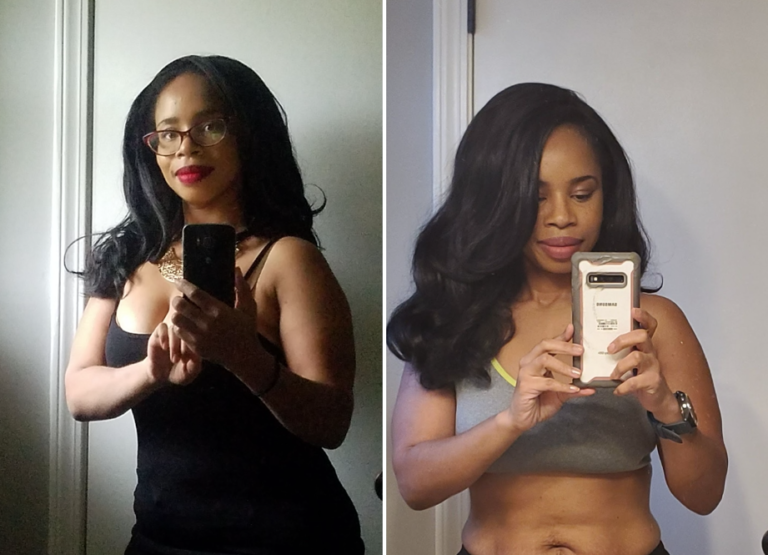Medically reviewed by Dr. Rashmi Kudesia
Many women experience a day or two of heavy flow when they have their periods. But if you’re like the 10 million American women who experience heavy uterine bleeding (also called HUB or menorrhagia), your flow might feel more like a broken levee than a small, manageable stream.
HUB can disrupt a woman’s everyday life, and losing so much blood can also cause the loss of iron, which can cause another potentially serious condition called iron deficiency anemia (IDA). Are you wondering if you might have HUB or IDA? HealthyWomen spoke with Dr. Rashmi Kudesia, assistant clinical professor of obstetrics and gynecology at CCRM Fertility and Houston Methodist Hospital and a member of HealthyWomen’s Women’s Health Advisory Council, to learn more about the symptoms and treatment for these two related, but distinct, conditions.
How do you know if you have heavy uterine bleeding?
You might have heavy uterine bleeding if your period lasts more than seven days. Additional symptoms include soaking through one or more tampons or menstrual pads every hour for many hours in a row, passing blood clots larger than a quarter or needing to double up on pads to prevent leaking.
Kudesia said that menstrual cycles should be used as a vital sign, because they can tell women a lot about their overall health. To get a better sense of their cycles, she said women experiencing HUB symptoms should track their bleeding and pain symptoms. How many days, for instance, do you experience bleeding? How often are you passing large clots? Do you need to take days off from work or school due to your bleeding or from pain? Recording as much as possible about your symptoms means you’ll be able to provide detailed answers to your health care provider’s questions about what you’re experiencing — and that will help her figure out next steps.
For example, a health care provider may ask to take a sample of your blood, do a Pap test, take a sample of tissue from the inside of your uterus or give you an ultrasound. These tests and procedures not only can help confirm your HUB but also rule out more potentially serious issues such as precancerous issues in your uterus.
One of the best ways to learn if your bleeding is normal, said Kudesia, is by simply continuing to do what you’re probably already doing: “Talk with your girlfriends.” By hearing other women’s experiences, even during small talk, you can start to get a feel for whether your symptoms seem outside of the norm.
What is iron deficiency anemia, and what does it have to do with HUB?
Chronic blood loss may lead to losing too much iron, which is needed to produce hemoglobin, a substance in red blood cells that carries oxygen throughout the body. This lack of adequate iron is aptly called iron deficiency anemia. While HUB is common—nearly 25 percent of women have HUB—many women are still not aware that experiencing HUB for six months or more can lead to IDA.
Kudesia says the symptoms of IDA may be nonspecific and include fatigue, headaches, pale skin, cold hands and feet and shortness of breath. Some women, however, don’t realize they are anemic, because blood loss over time and only gradually depletes iron. So some women with IDA may not have any symptoms. Therefore, even if you aren’t experiencing any HUB symptoms except for blood loss, it’s essential that you see a health care provider, who can both confirm a diagnosis for HUB and also do a blood test to check for IDA.
It’s important to keep in mind that although HUB and IDA are separate conditions, they must be treated in tandem, Kudesia said. “Fix the problem,” she said, “rather than put a Band-aid over it.”
In addition, Kudesia said that once you get diagnoses for HUB and IDA, your health care provider will need to confirm that your iron deficiency is actually being caused by your heavy periods. This is because some iron deficiencies aren’t caused by blood loss, but by your body’s inability to absorb iron into the bloodstream in your small intestine, a lack of iron in your diet or pregnancy.
Treatment options for HUB and IDA
Kudesia said there are two paths for treating HUB: medical and surgical. Medical therapies may include nonsteroidal anti-inflammatory drugs such as ibuprofen or naproxen to reduce blood loss. Oral contraceptives, the hormone progesterone or a hormonal IUD may also be prescribed to correct a hormone imbalance or regulate menstrual cycles.
A number of surgical procedures, including hysterectomy (which is the removal of your uterus and cervix), are often used as a last resort for younger women who may still want to have children or for women of any age after other medical therapies have proven unsuccessful, said Kudesia.
The treatment for IDA depends on the severity of your symptoms. Changing your diet or taking iron supplements are recommended treatment options for an initial IDA diagnosis. However, depending on the severity of the diagnosis and whether an oral supplement is providing an efficient level of iron replacement, intravenous iron or red blood transfusions may be recommended.
Kudesia said that in addition to tracking your symptoms, you should try to learn as much as you can about your family medical history before seeing a health care provider. Also, in an effort to be empowered and take ownership over your own health, you should be armed with questions to ask during your appointment. Questions may include:
- I’ve tracked my symptoms — based on what I’ve recorded, what tests or procedures do you recommend to confirm I have HUB and/or IDA?
- Do you think you’ll need to do an ultrasound to look for uterine fibroids (which are noncancerous growths in the uterus that may contribute to HUB)?
- Do you think medical or surgical treatments will work better for me?
- If you’re prescribing a medical, not surgical, treatment, will my HUB recur over time?
- How will various treatment options for HUB impact my family planning?
- If I receive a diagnosis of IDA, do you think dietary changes or iron supplementation will work for me?















